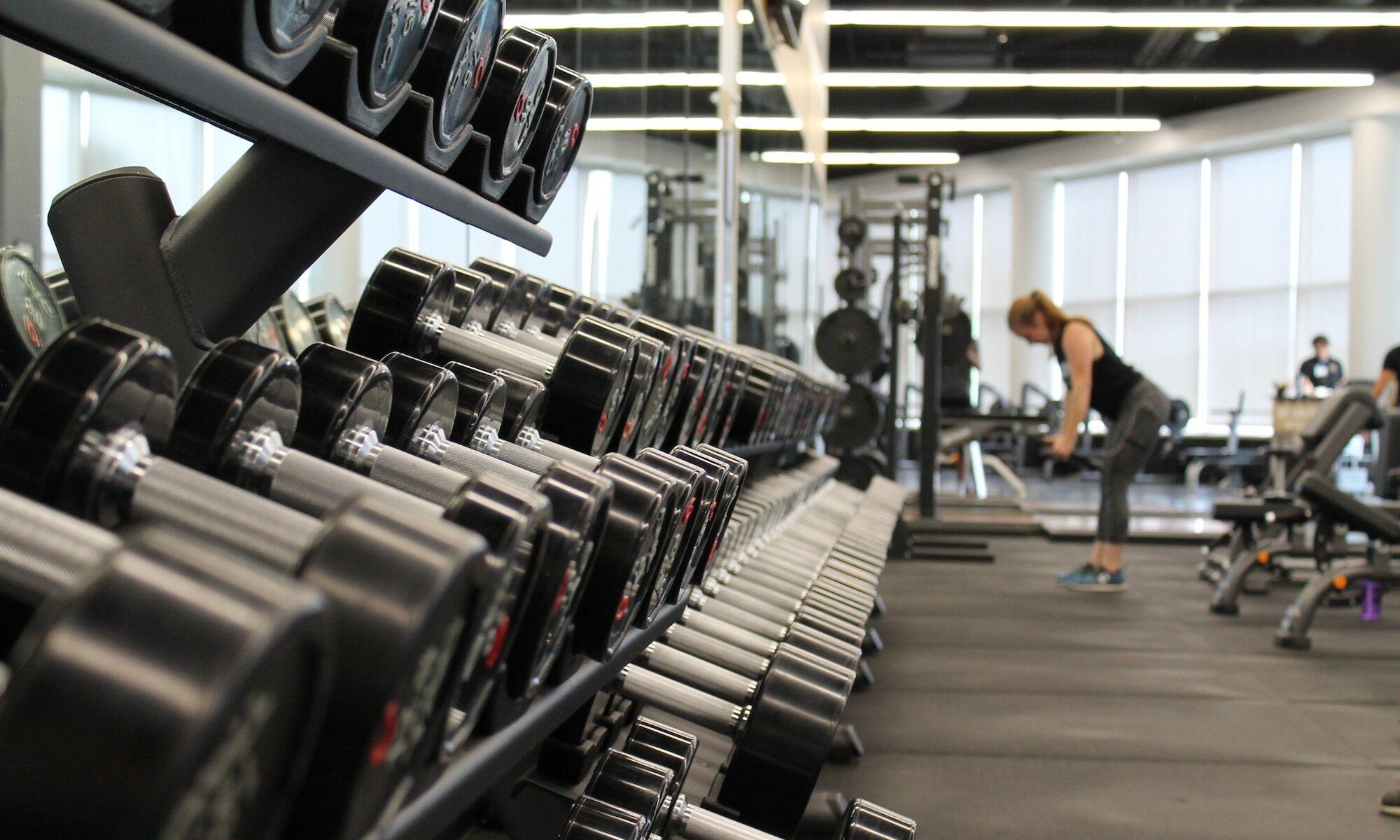Discover the power of varied workout routines in breaking through fitness plateaus. Incorporate different exercises, intensities, and training methods to reach new levels of progress and achieve your fitness goals. Find out if varied routines are the game-changer you’ve been waiting for.
Are you tired of hitting a fitness plateau and feeling stuck in your workout routine? Well, there might be a solution. In this article, we explore the concept of varied workout routines and whether they have the potential to break through those frustrating plateaus. By incorporating different exercises, intensities, and training methods, you might just discover the key to unlocking new levels of progress and reaching your fitness goals. So, if you’re ready to spice up your workouts and make some gains, keep reading to find out if varied routines could be the game-changer you’ve been waiting for.
Importance of Varied Workout Routines
Definition of plateau in fitness
A plateau in fitness refers to a period of time where your progress and improvement seem to come to a halt. It is essentially a plateau or leveling off in your performance despite your continued efforts and consistency in your workouts. During a plateau, you may find that your strength gains, muscle growth, or weight loss goals stall, leaving you feeling frustrated and demotivated.
Effects of plateau on progress
Experiencing a plateau in your fitness journey can have a significant impact on your progress. Firstly, your strength and muscle growth may stagnate during a plateau. Your body adapts to the repetitive exercises and becomes more efficient at performing them, resulting in less muscle breakdown and limited muscle growth. This can make it difficult to achieve the desired physique or increase your overall strength.
Moreover, plateaus can also lead to a lack of motivation. When you’re not seeing the results you want despite your efforts, it can be disheartening and cause you to question the effectiveness of your workouts. This lack of motivation can further contribute to a decline in consistency and adherence to your exercise routine.
Role of varied workout routines
Varied workout routines play a crucial role in breaking through plateaus and ensuring continued progress in your fitness journey. By introducing variety into your workouts, you challenge different muscle groups and force your body to adapt to new movements and exercises. This, in turn, stimulates muscle growth and helps you overcome the plateau.
Variety also breaks the monotony of repetitive exercises, making your workouts more enjoyable and engaging. Trying out different exercises and training methods can reignite your motivation and keep you excited about your fitness goals. Additionally, varied workout routines prevent your body from adapting to specific exercises, allowing you to continue making progress.
Understanding Plateaus in Fitness
Definition of a plateau
A fitness plateau can be defined as a prolonged period of time wherein an individual’s progress, be it in terms of strength, muscle growth, or weight loss, levels off despite consistent efforts. It is a point at which the body has adapted to a certain level of exercise and no longer experiences significant improvements.
Reasons for plateaus
There can be several reasons for encountering a plateau in fitness. One possible reason is that the body has become accustomed to the specific type and intensity of exercise being performed. When the body adapts, it becomes more efficient at performing the exercises, resulting in fewer gains or improvements.
Another reason for encountering a plateau is overtraining or not allowing for sufficient rest and recovery. It’s important to strike a balance between pushing yourself to new limits and giving your body the time it needs to repair and rebuild. Failing to provide adequate rest can hinder progress and lead to a plateau.
Types of plateaus
Plateaus can manifest in different ways depending on the individual and their fitness goals. For instance, one may experience a strength plateau where they are unable to increase the amount of weight they can lift. Alternatively, a muscle growth plateau may be characterized by a lack of noticeable gains in muscle size despite consistent training.
Similarly, a weight loss plateau can occur when the body adapts to a certain caloric deficit and no longer responds by shedding pounds. It’s essential to identify the type of plateau you’re experiencing in order to implement the most effective strategies to overcome it.
Effects of Plateau on Progress
Stagnation in strength and muscle growth
When you hit a plateau, progress in terms of strength and muscle growth can come to a standstill. Your body has adapted to the exercises you’ve been doing, and it becomes harder to stimulate muscle growth and increase overall strength. Without varied workout routines, your muscles aren’t being adequately challenged, resulting in limited progress.
Lack of motivation
Hitting a plateau can lead to a lack of motivation and enthusiasm for your fitness journey. When you’re not seeing the results you desire despite your efforts, it can be discouraging and make it difficult to stay dedicated to your workouts. The lack of progress can make you question whether all your hard work is paying off, ultimately leading to decreased motivation.
Frustration and demotivation
Experiencing a plateau can be incredibly frustrating, especially when you’ve been consistently putting in the effort. The lack of progress and the feeling of being stuck can lead to demotivation and a sense of hopelessness. It’s important to recognize this frustration and find effective strategies to overcome plateaus in order to maintain a positive mindset and continue progressing.
Role of Varied Workout Routines
Breaking the monotony
One of the key roles of incorporating varied workout routines is breaking the monotony of repetitive exercises. Doing the same exercises over and over again can become boring and tedious, leading to a decrease in motivation and enjoyment. By introducing variety into your workouts, you keep things fresh and exciting, making it easier to stay committed to your fitness goals.
Challenging different muscle groups
Varied workouts allow you to challenge different muscle groups and target them from different angles. By constantly switching up your exercises, you ensure that all your muscles are being adequately stimulated and worked. This comprehensive approach leads to balanced muscle development and prevents any one muscle group from becoming overworked or neglected.
Preventing adaptation
When you perform the same exercises repeatedly, your body adapts to the stress placed upon it. It becomes more efficient at performing those specific movements, resulting in a decreased stimulus for growth and development. By incorporating varied workout routines, you prevent this adaptation and continue to challenge your body, stimulating progress and overcoming plateaus.
Improving overall fitness
Varied workouts not only break through plateaus but also improve overall fitness. By incorporating different exercises, training methods, and intensities, you ensure that your body is constantly being pushed to new limits. This increases your functional strength, cardiovascular endurance, and flexibility, making you a well-rounded athlete and enhancing your overall fitness level.
Strategies to Incorporate Variations
Changing exercise selection
One effective strategy for incorporating variations is by changing your exercise selection. Instead of sticking to the same exercises, try incorporating alternatives that target the same muscle groups. For example, if you’ve been doing barbell squats for your lower body, switch to lunges or Bulgarian split squats to challenge your muscles in different ways.
Adjusting intensity and volume
Varying the intensity and volume of your workouts can also break plateaus and stimulate progress. You can opt for high-intensity interval training (HIIT) one day, which involves short bursts of intense exercise, followed by active recovery periods. On other days, you can focus on lower intensity steady-state cardio or long-duration endurance exercises.
Adding new training methods
Introducing new training methods, such as plyometrics or resistance bands, can also add variety to your workouts. Plyometric exercises involve explosive movements and can improve power and agility. Resistance bands add an external resistance and challenge your muscles in a different way. By incorporating these methods, you keep your workouts engaging and continually progress towards your goals.
Trying different training splits
Changing your training split can also provide variety and help you break through plateaus. Instead of following a traditional five-day split, try implementing a push-pull-legs routine or a full-body workout. These different training splits ensure that your muscles are being worked in different ways and prevent adaptation.
Progressive Overload and Variations
Importance of progressive overload
Progressive overload is a fundamental principle of fitness training, regardless of the workout routine you choose. It refers to gradually increasing the intensity, volume, or complexity of your workouts in order to provide a stimulus for adaptation and progress. Without progressive overload, your body will not experience the necessary stress to grow and improve.
Combining progressive overload with varied routines
Incorporating variations into your workout routines is a natural way to implement progressive overload. By constantly challenging your body with new exercises, training methods, and intensities, you are effectively increasing the demands placed on your muscles. This, combined with progressive overload, ensures that you continue to progress and avoid plateaus.
Avoiding excessive changes
While it is crucial to incorporate variations into your workout routines, it’s equally important to avoid excessive changes. Constantly switching up your workouts without allowing for sufficient time to adapt can hinder progress and lead to inconsistent results. It’s essential to strike a balance between incorporating variations and providing your body with the time it needs to adapt and grow.
Building a Well-Rounded Workout Program
Incorporating different types of exercises
To build a well-rounded workout program, it’s important to incorporate different types of exercises that target various muscle groups and movement patterns. This includes resistance training exercises for strength and muscle growth, cardiovascular exercises for endurance, and flexibility and mobility exercises to improve joint range of motion and prevent injuries.
Balancing strength and cardiovascular training
A well-rounded workout program should strike a balance between strength training and cardiovascular training. Strength training helps build lean muscle mass, improve bone density, and increase overall strength. Cardiovascular training, on the other hand, improves heart health, boosts endurance, and aids in weight management. Incorporating both types of training ensures optimal overall fitness.
Including flexibility and mobility workouts
Flexibility and mobility workouts should not be neglected in a well-rounded program. These workouts improve joint and muscle flexibility, enhance posture, and decrease the risk of injuries. Incorporating stretching, yoga, or Pilates into your routine can greatly improve overall functionality and performance.
Allowing for sufficient rest and recovery
While building a well-rounded workout program, it’s essential to allow for sufficient rest and recovery. Overtraining can lead to plateaus and injuries, undermining your progress. Schedule days off from intense workouts and ensure you’re getting enough sleep to promote muscle repair and growth. Regular rest and recovery help prevent burnout and optimize your overall fitness journey.
The Role of Periodization
Definition and purpose of periodization
Periodization is a training technique that involves dividing your workout program into distinct phases or cycles. Each phase focuses on different training goals and variables, such as intensity, volume, and exercise selection. The purpose of periodization is to optimize performance, prevent plateaus, and minimize the risk of overtraining.
Using periodization to avoid plateaus
By incorporating periodization into your training program, you can avoid plateaus and continue making progress. The different phases allow for variations in workout intensity, volume, and exercise selection, keeping your body constantly challenged. By strategically progressing through these phases, you can effectively break through plateaus and reach new levels of fitness.
Periodization models
There are different periodization models that can be utilized based on your fitness goals and training preferences. Some common periodization models include linear periodization, where training intensity and volume gradually increase over time, and undulating periodization, where training variables fluctuate within a shorter time frame. Exploring these models can help you find the one that aligns best with your specific needs.
Psychological Benefits of Varied Workouts
Increased motivation and enjoyment
Incorporating varied workouts into your routine can greatly increase your motivation and enjoyment. Trying new exercises, training methods, and intensities keeps your workouts interesting and engaging. The novelty of these variations sparks excitement and curiosity, making you more eager to hit the gym and stay consistent with your fitness endeavors.
Reduced boredom and burnout
Repetitive workouts can quickly become monotonous and lead to boredom and burnout. By adding variety, you break the cycle of doing the same exercises day in and day out. Varied workouts inject freshness into your routine, keeping things exciting and preventing the feeling of being stuck in a fitness rut. This ultimately reduces the risk of burnout and ensures long-term adherence to your fitness goals.
Positive impact on adherence and consistency
When you enjoy your workouts and find them engaging, it becomes easier to stay consistent and adhere to your fitness routine. Varied workout routines provide the necessary stimulation to keep you motivated and committed. The positive impact on adherence and consistency ensures that you continue making progress towards your goals, breaking through plateaus along the way.
Conclusion
In conclusion, the importance of varied workout routines cannot be emphasized enough. Hitting a plateau in your fitness journey can be disheartening, but by understanding the reasons behind plateaus and the effects they have on progress, you can better overcome them. Varied workout routines play a vital role in breaking plateaus by breaking the monotony, challenging different muscle groups, preventing adaptation, and improving overall fitness.
Incorporating variations into your workout routines can be achieved through changing exercise selection, adjusting intensity and volume, adding new training methods, and trying different training splits. By combining progressive overload with varied routines and avoiding excessive changes, you can ensure continuous progress while maintaining a balanced approach.
Building a well-rounded workout program that incorporates different types of exercises, balances strength and cardiovascular training, includes flexibility and mobility workouts, and allows for sufficient rest and recovery is essential. Periodization can further optimize performance and prevent plateaus by strategically structuring your training program.
Beyond the physical benefits, varied workouts also provide psychological benefits, such as increased motivation and enjoyment, reduced boredom and burnout, and a positive impact on adherence and consistency. By incorporating variety into your workout routines, you create an environment that keeps you engaged, excited, and committed to your fitness goals.
In summary, the inclusion of varied workout routines is crucial for breaking plateaus, ensuring continued progress, and achieving optimal fitness. Embrace the power of variety, challenge your body in new ways, and watch as you break through plateaus and surpass your fitness expectations.


